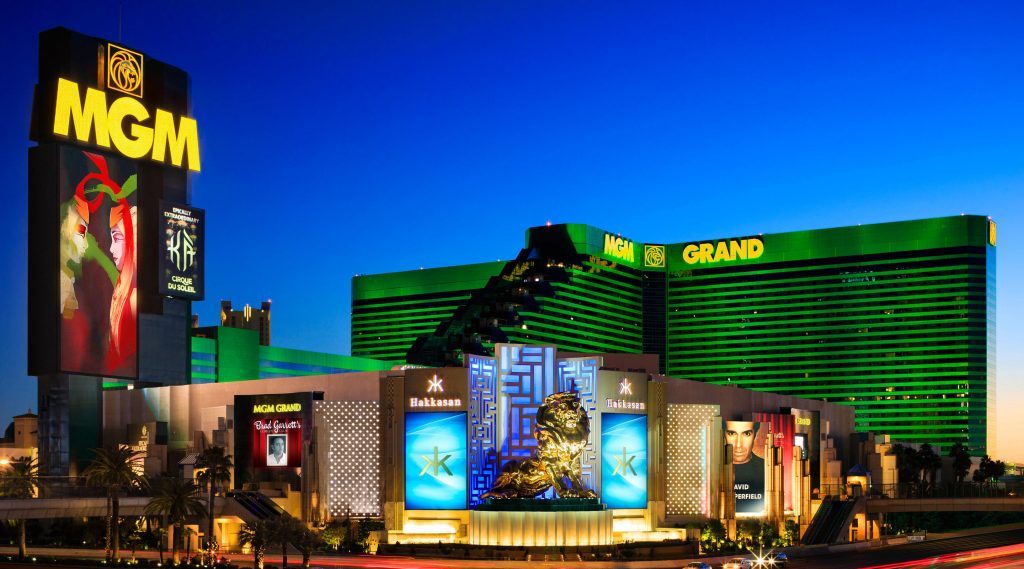Despite Recent Returns, Analysts Bullish on MGM Resorts Stock as Company Seeks to Control Costs
Posted on: May 27, 2019, 10:39h.
Last updated on: May 27, 2019, 10:39h.
Shares of MGM Resorts International are up just 5.3 percent year-to-date, barely more than half the year-to-date gain of rival Las Vegas Sands Corp. and just over a third of the returns notched by Wynn Resorts, Ltd.

Based on those comparisons, investors have reasons to be dissatisfied with the performance of MGM’s stock, but there are some positive factors that Wall Street may be overlooking. MGM – the owner of the Bellagio, Mandalay Bay, The Mirage, and 11 other Las Vegas Strip casino resorts – carries $15 billion in debt, but the company is working to bolster its balance sheet.
The company is looking to reduce its workforce by 1,000 by the end of June in an effort to save $100 million and up to $200 million in 2021. Beyond cost-cutting efforts, some financial market observers see reasons to like MGM stock.
Make The Cash Call
By two important metrics – free cash flow and earnings before interest, taxes, depreciation, and amortization (EBITDA) – MGM looks reasonably valued relative to its rivals, according to Barron’s. In recent years, MGM shelled out $5 billion to develop MGM Cotai in Macau, Park MGM in Las Vegas, and MGM Springfield in Massachusetts.
Recently, MGM balked at the idea of buying Wynn’s Encore Boston Harbor in Everett, Mass., a property valued at $2.6 billion, in a sign of financial restraint, and MGM currently has no major projects in the works, positioning to boost free cash flow.
The casino operator expects to generate $2.50 per share in free cash flow this year with that number jumping to $3.50 a share in 2020, according to Barron’s.
Improved free cash flow could help MGM reduce debt or reward investors with buybacks or higher dividends. The casino operator currently pays a quarterly dividend of 13 cents per share and yields 2.04 percent. Rival Las Vegas Sands pays out 77 cents a quarter to investors and yields 5.36 percent,
We think MGM Resorts is positioned to maintain its leading presence in the lower-growth lower-barrier Las Vegas region (49 percent of estimated 2019 EBITDA) while participating in the attractive long-term growth opportunity of Macau (19 percent of EBITDA),” said Morningstar in a recent note. “MGM Resorts has expanded its room share in Macau to 8 percent from 3 percent with its Cotai property, which opened in February.”
Other analysts are bullish on MGM, as well. Earlier this month, Union Gaming’s John DeCree reiterated a “Buy” rating on the stock. While he lowered his price target on the shares to $38 from $40, his outlook for MGM “for 2020 in Las Vegas remains favorable.”
Some Supporters
Some investors are already embracing MGM shares. Earlier this month, a filing with the Securities and Exchange Commission (SEC) showed newly appointed director Paul Salem spent $20.3 million to acquire 800,000 MGM shares, marking the largest open market purchase of the stock by a company insider in almost 15 years.
Activist investors Corvex Management and Starboard Value also own MGM shares. Corvex, which is run by Keith Meister, a member of MGM’s board, maintains a 3 percent share. A recent filing with the SEC indicates Starboard Value, an activist hedge fund, owns 2.9 million MGM shares.
Starboard, controlled by Jeff Smith, is reportedly pushing for changes at MGM, including the sale of the company’s Macau properties as well as merging MGM Growth Properties LLC with VICI Properties Inc. MGM Growth Properties is a real estate investment trust (REIT) spun off from MGM in 2016. VICI is a REIT that was separated from Caesars Entertainment in late 2017.
Related News Articles
Bragg Gaming Reports Solid Q2 Revenue, Continuing Success from Q1
VICI Properties Slides on News of Secondary Offering Worth up to $927.36M
Most Popular
Mirage Las Vegas Demolition to Start Next Week, Atrium a Goner
Where All the Mirage Relics Will Go
Most Commented
-
Bally’s Facing Five Months of Daily Demolition for Chicago Casino
— June 18, 2024 — 12 Comments
















Last Comment ( 1 )
I don't understand why these HOTEL CASIONS keep building , It takes a large amount of WORKERS to operate, especially house keeping ,the trash that comes out of these ROOMS will amaze a NORMAL PERSONS , I would like to see CEOS , DIRECTORS , MANAGERS , SUPERVISORS to help out and see what it's like before you start cutting positions . The main request in a HOTEL is cleanliness from GUEST , not marketing or VIP SERVICES , when you don't have the people to clean so what's the purpose to operate a HOTEL CASINO , might is well close the DOORS and turn off the lights and STOP attacking UNION WORKERS to PROVE you POINT.